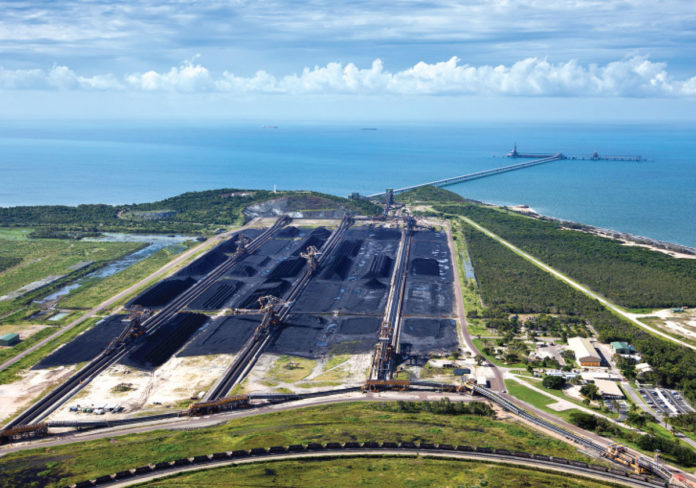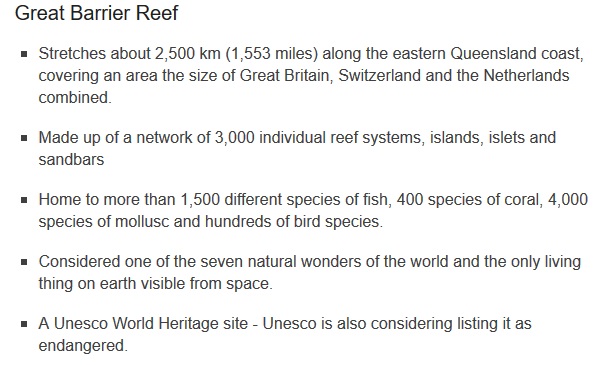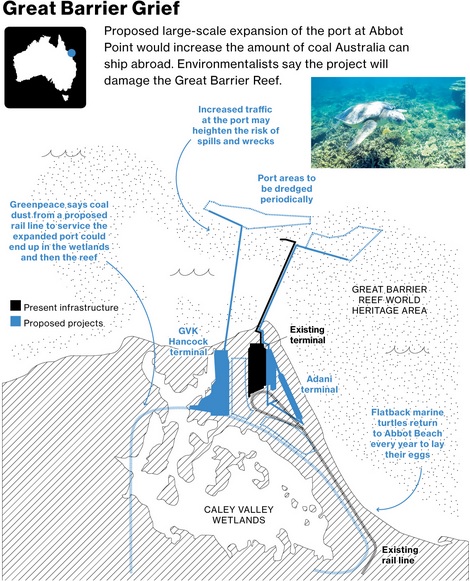
The Great Barrier Reef, one of the most bio-diverse places on Earth, is in danger – the region will soon host one of the world’s largest coal shipping ports. The North Queensland Conservation Council (NQCC) claims to have uncovered secret plans for a tugboat harbor. If successfully built, the tugboat harbor would heighten the cumulative environmental impacts of the port expansion, as it would involve dredging and increased coal ship traffic through Great Barrier Reef waters.
Documents obtained by the Council revealed the “hidden” plans for the tugboat harbor that weren’t included in an Environmental Impact Statement provided to the environment minister, Greg Hunt, by the Queensland Department of State Development.
“The EIS is incomplete, is not an accurate assessment of the Abbot Point project and its likely impacts, and is likely to dramatically understate those impacts. Hunt now needs to step in and immediately hit pause on the approvals process for Abbot Point, require a full and complete environmental assessment from the Queensland government, and investigate whether the Queensland government has engaged in false and misleading practice,” NQCC campaigner, Jeremy Tager remarked.
NQCC also alleged that the harbor would be paid for by the government at an estimated cost to the public of $90-$125 million.
“It appears that this project amounts to a backdoor subsidy for the likes of Adani. A taxpayer-funded largesse for a foreign coal billionaire at a time: when Queensland is in a state of budget emergency, when the reef is in peril, and when the Queensland government is pretending that it cares about climate change,” Tager added.
According to The Guardian, the Environmental Defenders Office in Queensland has written to Hunt arguing that the bid for approval now appears to breach guidelines under the Environmental Protection and Biodiversity Conservation Act.
“Our client has concerns about material deficiencies in the EIS prepared … and provided as a basis for public consultation and your pending approval decision. Specifically, our client considers that the EIS fails to meet the requirements regarding the assessment of cumulative and consequential impacts of the project, in that it does not address the likely impacts of the tug harbor proposed to be constructed at the port of Abbot Point to meet increasing towage demand as coal throughput at the port increases,” said Michael Berkman, an EDO solicitor.
Conservation groups had asked the federal court to overturn Hunt’s approval of Adani’s Carmichael Mine, simply because he did not take into account the impact on the reef or the greenhouse gases that would be emitted when the coal is burned – coal from the mine would create annual emissions similar to those from countries such as Malaysia and Austria, and more than New York City. In a major setback, Queensland’s land court dismissed their plea a few days ago. The land court president, Carmel MacDonald, recommended the state government approve the mine but with extra conditions around monitoring the impact on waterways and a local threatened species, the black-throated finch.

The reef, which is considered to be one of the most vulnerable places in the world (to the impacts of climate change), is at risk of having its status downgraded by the UN cultural organization UNESCO to “world heritage in danger”. Despite threats of a downgrade without action on rampant coastal development and water quality, in December 2013, Australia approved a massive coal port expansion in the region and associated dumping of dredged waste within the marine park’s boundaries.
In July 2014, the government approved a project that will lead to the creation of Australia’s biggest coal mine in the Galilee Basin region of central Queensland. The Carmichael Mine, owned by the Indian conglomerate Adani, will cover an area seven times the size of Sydney harbor and will connect to a new terminal at Abbot Point, about 50 miles from the reef, along the state’s northeast coast. When the $16 billion project is developed, the plan is to export 60 million tons of coal each year to India, for 60 years.
Environmentalists have argued that the UN’s hopes of curbing global warming to less than 2 degrees Celsius are incompatible with Australia’s coal expansion plans. They argue that a rise in coal shipments from the region will release more carbon into the atmosphere and damage coral that’s already at risk from climate change. With as many as nine large mines proposed for Queensland’s Galilee Basin alone, Australia could see its coal exports double in a decade; the country exports about a million tons of coal a day.
“The Galilee Basin is one of the world’s largest carbon bombs. And if we are to have a chance of staying below two degrees it’s one of those projects that must stay in the ground,” said Josh Creaser, a campaigner with the environmental group 350.org.
At the recently concluded Paris climate summit, Australian Prime Minister Malcolm Turnbull had said that the country was undaunted by the climate change challenge, pledging to redirect $800 million from its foreign aid budget to help at-risk Pacific islands, as well as an investment into renewable energy research. But how can the government expand coal exports and continue to claim to be protecting the environment AND the reef?
This Article (Shocking: Queensland Government Plans $90-$125 Million Coal Harbor On The Great Barrier Reef) is free and open source. You have permission to republish this article under a Creative Commons license with attribution to the author and AnonHQ.com.





